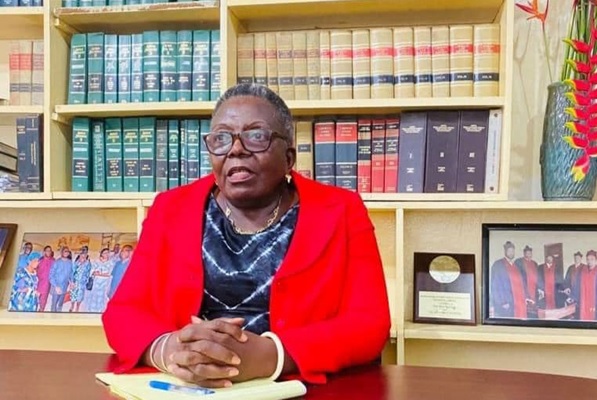MONROVIA – In a significant move that has garnered widespread attention, President Joseph Boakai exercised his constitutional right to offer former Liberian Chief Justice Gloria Musu-Scott compassionate leave.
Compassionate leave, also known as compassionate release or executive clemency, is a process by which a prisoner is granted early release from prison due to exceptional circumstances. The decision to grant compassionate leave to Madam Scott comes after careful consideration of her case. Scott, who was sentenced under questionable circumstances, has maintained her innocence throughout the legal proceedings. Despite the prosecution’s inability to prove their case, the court found the former Liberian Justice Minister guilty.
Compassionate leave is typically granted in situations where the prisoner is terminally ill, suffering from a severe medical condition, or experiencing extraordinary personal circumstances that warrant their release. In the case of Madam Scott, President Boakai recognized the need for mercy, humanitarianism, and the best interests of the prisoner.
This decision has sparked discussions among legal experts and the public, raising questions about the fairness of the initial trial and the role of the justice system in upholding justice. The granting of compassionate leave to a former Chief Justice highlights the importance of ensuring justice is served and fairness prevails.
As the news of Madam Scott’s release spreads, many are expressing their support for her and calling for a thorough review of the circumstances that led to her conviction. The case has ignited a renewed debate on the integrity of the justice system and the need for comprehensive reforms to prevent such discrepancies from occurring in the future.
The compassionate leave granted to former Chief Justice Gloria Musu-Scott serves as a reminder of the complexities and challenges within the legal system. It also emphasizes the responsibility of leaders to assess cases with compassion and fairness, safeguarding the principles of justice and human rights.
While the decision to grant compassionate leave may be controversial, it signifies a step towards addressing potential flaws within the justice system and ensuring that justice is served for all individuals involved. The release of Madam Scott marks a significant moment in Liberia’s legal landscape, prompting a critical examination of the country’s judicial processes.
As discussions continue to unfold, it is evident that the impact of compassionate leave extends beyond the individual case. It serves as a catalyst for broader conversations on the need for transparency, accountability, and equitable treatment within the justice system.







